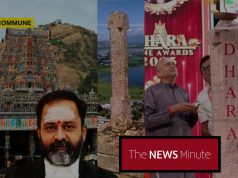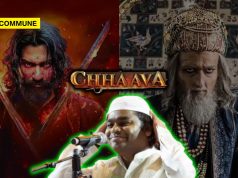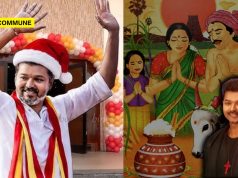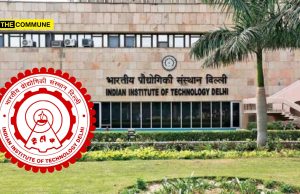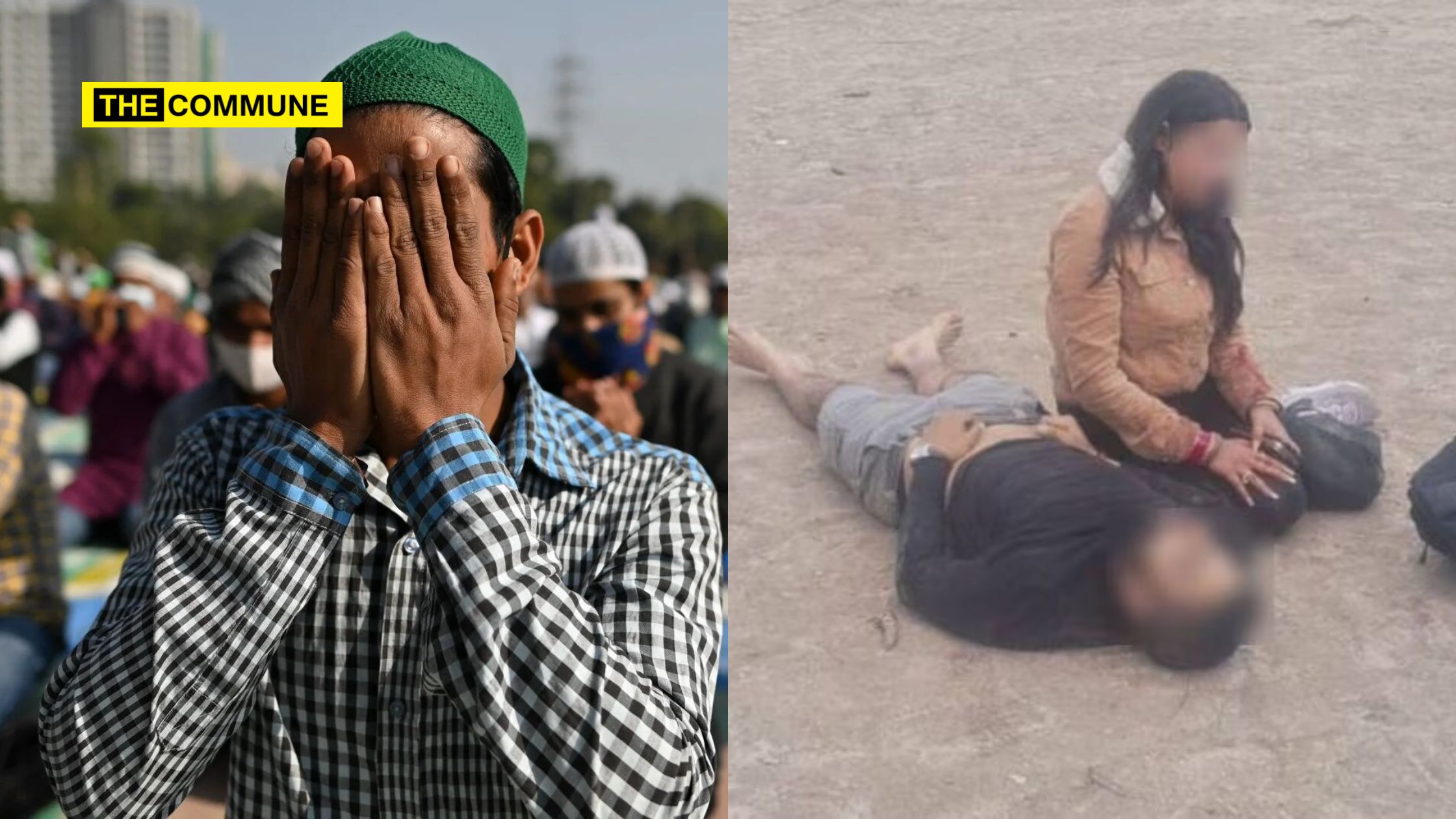
The recent terror attack in Pahalgam, where innocent civilians and pilgrims were targeted, once again exposes the dangerous fault lines that extremist elements seek to exploit in Indian society. While India grieves yet another assault on its civilizational ethos, it becomes more urgent than ever to call out the radicalized actors who seek to derail national unity.
With Pakistan trying to radicalized and polarize the Muslim population in India, platforms like the Muslim Rashtriya Manch (MRM) emerge as beacons of hope—striving to bridge divides, foster a spirit of constructive nationalism among Muslims.
In India’s complex socio-political environment, Muslims have often been portrayed through a narrow lens—either as a marginalized minority or as a community detached from mainstream nationalism. The Muslim Rashtriya Manch (MRM), inspired by the ideology of the Rashtriya Swayamsevak Sangh (RSS), stands in sharp contrast to this binary. It strives to bring Muslims—especially Pasmanda and other marginalized sections—into the national fold through constructive dialogue, socio-economic empowerment, and cultural integration.
MRM strongly asserts that patriotism and Muslim identity are not contradictory. Historical figures like Ashfaqulla Khan, Dr. APJ Abdul Kalam, and Abdul Hamid serve as role models for young Muslims, proving that love for the country is intrinsic to Islamic values. MRM promotes national unity through symbols and practices such as flag hoisting, cultural celebrations, and participation in national discourse—challenging the narrative that Indian Muslims are disconnected from nationalism.
Critics often attack the BJP for not fielding a single Muslim candidate in the 2024 Lok Sabha elections. While this is factually accurate, it does not automatically imply neglect or exclusion. True empowerment cannot be measured merely by symbolic representation. In contrast, Congress and other so-called secular parties have historically fielded Muslim candidates—but primarily from elite Ashraf castes, ignoring the aspirations and needs of Pasmanda communities (Ansari, 2022).
For decades, these parties have used Muslim votes without empowering them, creating an illusion of representation. The secular leadership never shared real political space or social dignity with the backward sections. They maintained caste barriers in the name of unity and used Pasmandas only for vote-bank politics, denying them education, voice, and dignity (Ali, 2021).
The Muslim Rashtriya Manch (MRM) has consistently advocated for reforms aimed at uplifting marginalized sections within the Muslim community, particularly focusing on issues like triple talaq, women’s rights, and Waqf Board transparency. However, these initiatives have often been met with resistance from certain elite factions within the community, who perceive MRM’s efforts as threats to their established positions of influence.
MRM’s campaign against the practice of triple talaq garnered significant support, with over one million Muslim women signing a petition advocating for its abolition. Despite this grassroots backing, organizations like the All India Muslim Personal Law Board (AIMPLB) opposed the government’s legislation criminalizing triple talaq, labeling it as anti-women and an infringement on religious practices. Such opposition often stems from concerns over losing traditional authority rather than genuine apprehensions about community welfare.
The Waqf Amendment Bill, supported by MRM, aims to introduce transparency and accountability in the management of waqf properties. The bill proposes measures such as mandatory verification of waqf property claims and the inclusion of non-Muslim members in waqf boards to reflect the diverse contributions to these endowments. Critics argue that these changes threaten Muslim autonomy and could lead to the appropriation of religious properties. However, proponents, including MRM, contend that the reforms are necessary to curb corruption and ensure the equitable distribution of resources.
Certain political entities have been accused of exploiting these reform initiatives to instill fear among Muslims for electoral advantages. For instance, during election campaigns, narratives suggesting that the BJP and MRM aim to undermine Islamic practices have been disseminated to consolidate Muslim votes against perceived threats. Such strategies not only misrepresent the intentions behind the reforms but also hinder constructive dialogue within the community.
The resistance to MRM’s reformative efforts often reflects a reluctance to relinquish entrenched power structures rather than genuine concerns for community welfare. By promoting transparency, gender justice, and inclusivity, MRM seeks to empower marginalized Muslims and integrate them into the broader national framework. Recognizing and addressing the dissemination of misinformation is crucial to fostering an environment conducive to meaningful reform and social justice.
Reforms such as the criminalization of triple talaq and the Waqf Board amendments have been vocally opposed by elite Ashraf leaders—not because of concern for the poor or religious sanctity, but because these reforms would benefit Pasmanda Muslims and women, thus ending their hold over community resources and institutions (Engineer, 2023).
Such leaders have often spread fake narratives and fear-mongering among marginalized Muslims, trying to portray the nationalist regime as anti-Muslim. In truth, it is the Pasmanda Muslims who have the most to gain from these reforms—and the most to lose if they allow themselves to be misled by agents of old vote-bank politics (Sarkar, 2020).
Elite Muslim leaders never allowed social integration with lower-caste Muslims. The absence of “roti aur beti” (inter-dining and inter-marriage) between Ashraf and Pasmanda groups exposes the deep social exclusion that prevails even within the community. It is time for Pasmanda Muslims to introspect—how long will they allow themselves to be used without being given equality and dignity in return?
The Pahalgam attack was not merely an act of terror—it was an attempt to fracture the soul of India, to widen the chasm between communities that extremists have long sought to exploit. In this critical juncture, movements like the Muslim Rashtriya Manch represent a vision of hope and unity. By emphasizing patriotism rooted in faith, empowering Pasmanda Muslims, championing gender rights, and promoting transparency, MRM challenges both the radical elements and the entrenched elites who have for too long monopolized the narrative.
The urgent need today is twofold: not only to bridge historical divides but also to actively foster a process of deradicalization within vulnerable sections of the Muslim community. Extremist ideologies prey on feelings of alienation and injustice; the antidote lies in education, empowerment, cultural pride, and active national integration. Platforms like MRM, with their grassroots engagement and reformist agenda, can play a crucial role in steering young Muslims away from radical influences and toward constructive citizenship.
The future of India’s Muslim community—and indeed of India’s unity itself—lies not in succumbing to fear, but in embracing reform, dignity, and national integration. Pasmanda Muslims, especially, must recognize that true empowerment comes not from slogans and selective representation, but from genuine social, economic, and political participation in the Indian mainstream. It is time to break free from the chains of historical manipulation and forge a new destiny of equality, pride, and national belonging.
Imran has a degree from TISS Mumbai and is part of Rashtriya Muslim Manch.
Subscribe to our channels on Telegram, WhatsApp, and Instagram and get the best stories of the day delivered to you personally.

